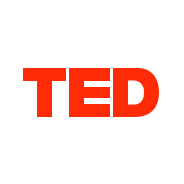Our planet has a carbon problem -- if we don't start removing carbon dioxide from the atmosphere, we'll grow hotter, faster. Chemical engineer Jennifer Wilcox previews some amazing technology to scrub carbon from the air, using chemical reactions that capture and reuse CO2 in much the same way trees do ... but at a vast scale. This detailed talk reviews both the promise and the pitfalls.

Wissenschaft & TechnikTalk
TED Talks Science and Medicine Folgen
Some of the world's greatest scientists, doctors and medical researchers share their discoveries and visions onstage at the TED conference, TEDx events and partner events around the world. You can also download these and many other videos free on TED.com, with an interactive English transcript and subtitles in up to 80 languages. TED is a nonprofit devoted to Ideas Worth Spreading.
Folgen von TED Talks Science and Medicine
136 Folgen
-
Folge vom 05.07.2018A new way to remove CO2 from the atmosphere | Jennifer Wilcox
-
Folge vom 03.07.2018How we're saving one of Earth's last wild places | Steve BoyesNavigating territorial hippos and active minefields, TED Fellow Steve Boyes and a team of scientists have been traveling through the Okavango Delta, Africa's largest remaining wetland wilderness, to explore and protect this near-pristine habitat against the rising threat of development. In this awe-inspiring talk packed with images, he shares his work doing detailed scientific surveys in the hopes of protecting this enormous, fragile wilderness.
-
Folge vom 02.07.2018The tiny creature that secretly powers the planet | Penny ChisholmOceanographer Penny Chisholm introduces us to an amazing little being: Prochlorococcus, the most abundant photosynthetic species on the planet. A marine microbe that has existed for millions of years, Prochlorococcus wasn't discovered until the mid-1980s -- but its ancient genetic code may hold clues to how we can reduce our dependence on fossil fuels.
-
Folge vom 27.06.2018The story of 'Oumuamua, the first visitor from another star system | Karen J. MeechIn October 2017, astrobiologist Karen J. Meech got the call every astronomer waits for: NASA had spotted the very first visitor from another star system. The interstellar comet -- a half-mile-long object eventually named `Oumuamua, from the Hawaiian for "scout" or "messenger" -- raised intriguing questions: Was it a chunk of rocky debris from a new star system, shredded material from a supernova explosion, evidence of alien technology or something else altogether? In this riveting talk, Meech tells the story of how her team raced against the clock to find answers about this unexpected gift from afar.
